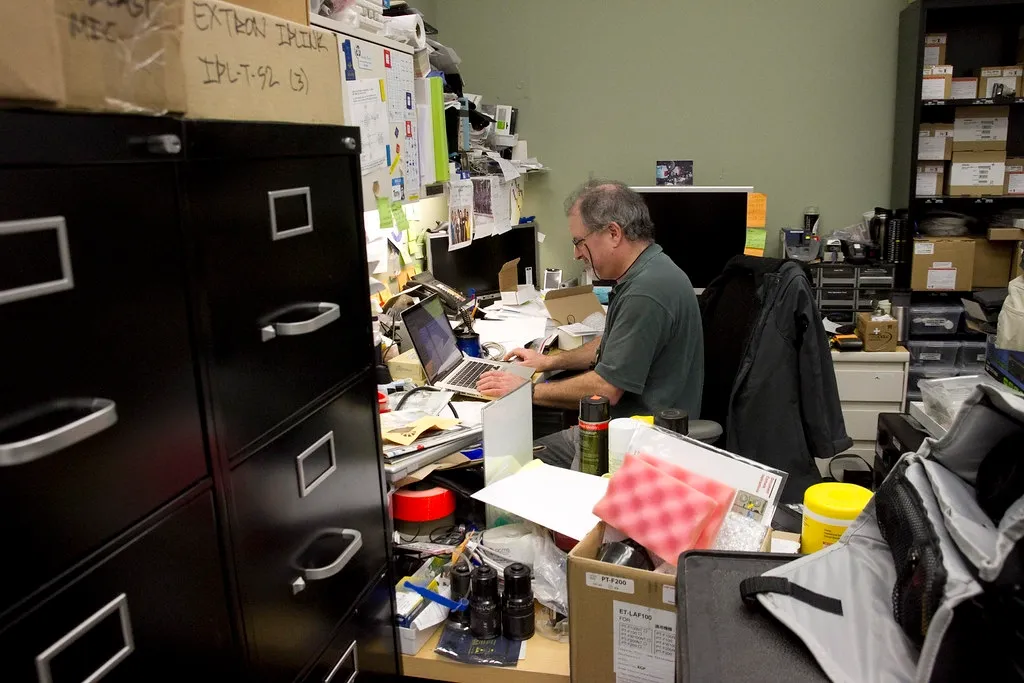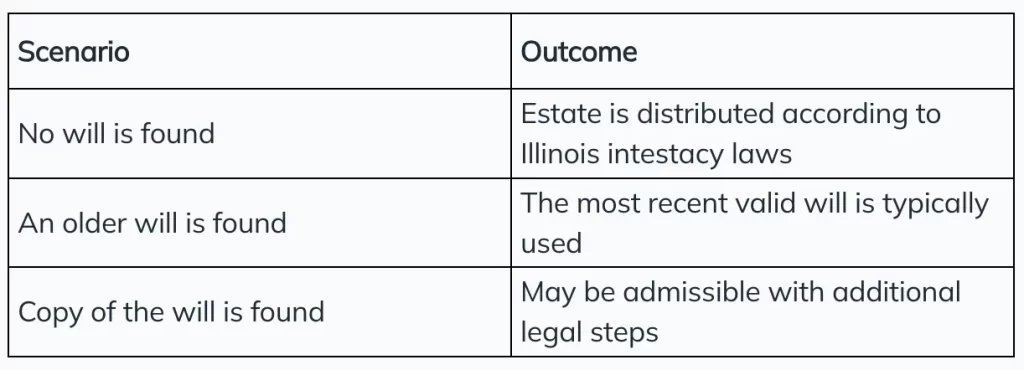The Missing Will Dilemma
In this particular case, the family believed that their deceased relative had executed a new will within the past year. However, they were uncertain about its contents, location, or even which attorney might have drafted it. This uncertainty led them to contact multiple law firms in the area, hoping to uncover any information about the elusive document.
If you find yourself in a similar situation in Illinois, it’s crucial to understand the steps you need to take and the potential implications of a missing will.
Steps to Take When a Will Is Missing

- Conduct a thorough search: Before assuming the worst, conduct an exhaustive search of the deceased’s home, office, and personal belongings. Check safe deposit boxes, filing cabinets, and even unlikely places where important documents might be stored.
- Contact financial institutions: Reach out to banks and other financial institutions where the deceased held accounts. Sometimes, people store important documents, including wills, in safe deposit boxes.
- Contact the Secretary of State: In Illinois, there are no county-level will repositories. But the Secretary of State in some rare cases may have a copy if the attorney who prepared the will has the original and cannot locate the testator.
- Reach out to attorneys: As in the case mentioned earlier, contacting local attorneys is a good strategy. If the deceased had worked with a lawyer to create their will, the attorney’s office might have a copy on file.
- Check with family members and close friends: Sometimes, individuals entrust copies of their will to family members or close friends. It’s worth asking if anyone was given such a responsibility.
Legal Implications of a Missing Will in Illinois
If the will remains unfound, Illinois law provides guidelines for how to proceed:

If no will is found, the estate will be distributed according to Illinois intestacy laws. These laws outline how assets should be distributed among surviving family members when there’s no valid will. While this ensures the estate is settled, it may not reflect the deceased’s true wishes.
If an older will is discovered, it may be used if it’s determined to be the most recent valid will. However, if there’s evidence that a newer will existed but can’t be located, the situation becomes more complex.
In some cases, a copy of the will might be found. Illinois law allows for the admission of a copy of a will to probate under certain circumstances. This process, known as proving a lost will, requires clear and convincing evidence that the will existed, was properly executed, and wasn’t revoked by the testator.
The Importance of Proper Estate Planning
This scenario underscores the critical importance of not only creating a comprehensive estate plan but also ensuring that it’s properly stored and its location is known to trusted individuals or your attorney. Proper storage of legal documents, including wills, can prevent significant stress and potential legal complications for your loved ones after your passing.
At Stejkowski Law, we understand the complexities and emotional challenges that arise in situations like these. Our experienced team can guide you through the process of searching for a missing will, navigating intestacy laws if necessary, or creating a new, comprehensive estate plan to ensure your wishes are clearly documented and easily accessible when needed.
Don’t let uncertainty cloud your family’s future. Whether you’re dealing with a missing will or want to create a robust estate plan, contact us for a free 15-minute consultation. We’re here to provide the legal expertise and compassionate support you need during these challenging times.


